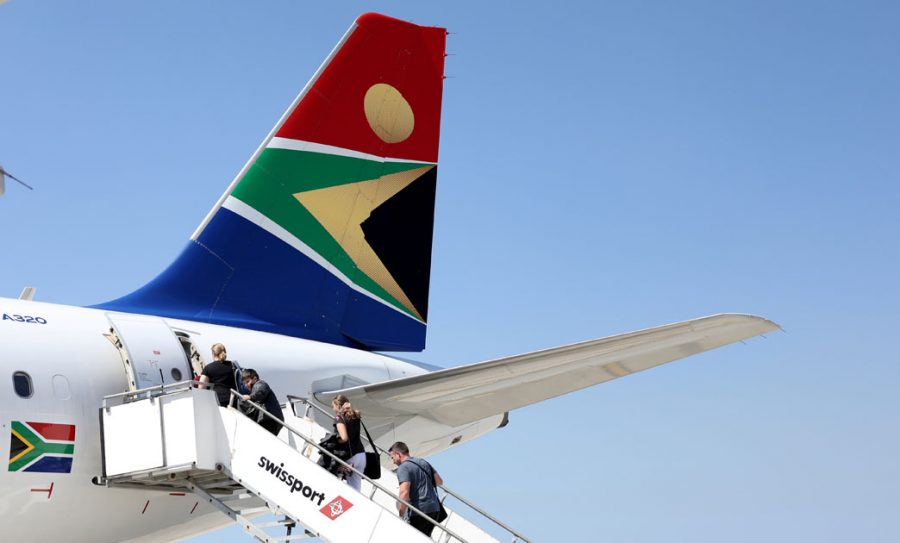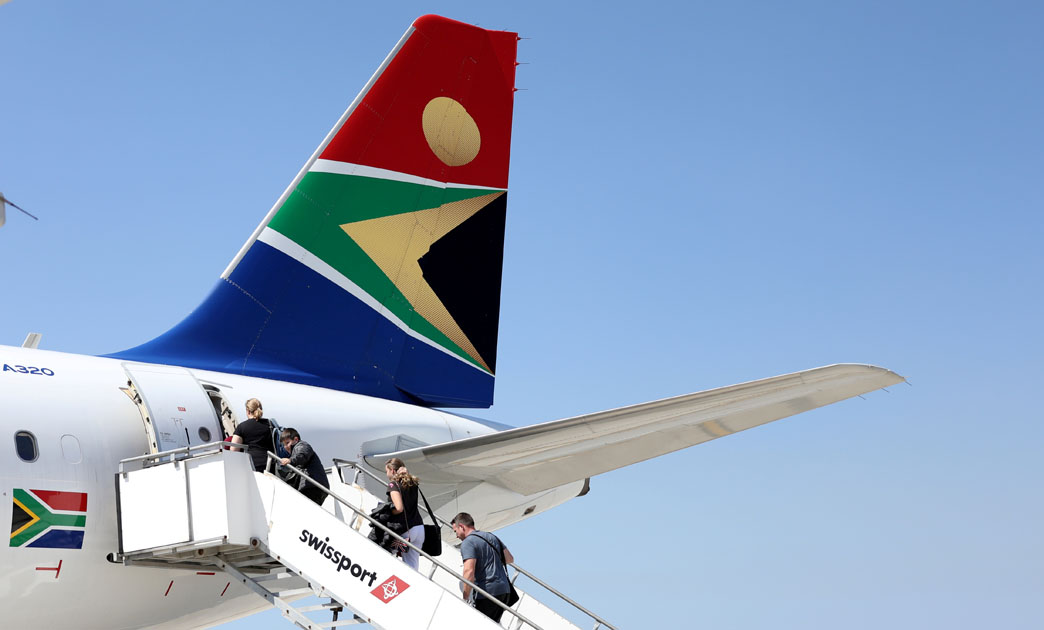
Hundreds of South African Airways Employees Return to Work Despite Strike
A few hundred South African Airways (SAA) employees have returned to work despite a strike, allowing the airline to resume some regional flights, acting Chief Executive Zuks Ramasia said on Tuesday. SAA is currently operating all its international and some of its regional flights and domestic services. These services are being carried out by sister airline Mango, […]

A few hundred South African Airways (SAA) employees have returned to work despite a strike, allowing the airline to resume some regional flights, acting Chief Executive Zuks Ramasia said on Tuesday.

SAA is currently operating all its international and some of its regional flights and domestic services. These services are being carried out by sister airline Mango, Airlink and SA Express.
On Tuesday, the airline announced that it was resuming flights to six destinations on the African continent – namely Accra, Lagos, Lusaka, Maputo, Windhoek and Harare.
“We thank SAA employees who are back at work and those employees who have not joined the industrial action. They continue to carry our flag around the world. We also thank our loyal customers for supporting us in this difficult time,” Ramasia said.
Five days ago the National Union of Metal Workers of South Africa (NUMSA) and South African Airways Cabin Crew Association (SACCA) embarked on an industrial action. The unions are demanding a wage increase of 8%, whilst the company is offering to pay 5.9% in March 2020, assuming funds are available at that time.
“We applaud our committed employees for understanding that the airline cannot afford salary increases at present, because of the financial difficulties we are facing.
“We call on all our employees to return to work for the sake of our customers and the company. After all, our customers contribute to our salaries and it is only through their confidence and custom that we can secure the future for SAA and ensure our essential contribution to the country’s economy. We are also very mindful of the contribution made by taxpayers to our sustainability,” Ramasia said.
At a media briefing on Tuesday, SAA management explained the state of negotiations with unions, the ‘no-work, no-pay’ principle; and confirmed SAA’s continued commitment to safety.
“Safety is our primary responsibility. SAA has never – and will never – compromise safety under any circumstances,” SAA said.
Ongoing industrial action and intimidation
SAA said a growing number of employees do not support the strike.
More workers are coming back to work, and this is evidenced by the increasing number of flights being operated by the airline.
“SAA strongly condemns the intimidation of employees who have decided to report for work. Let us be clear; describing some of our employees as ‘traitors’ and threatening that ‘we know where you are’ are flagrant methods of intimidation – and will not be tolerated by SAA,” Ramasia said.
The airline said it was unfortunate that several incidents relating to intimidation against staff, as well as attempted non-compliance of picketing rules, have occurred.
“No one should ever be pressured by any union official or member to participate in this industrial action. The airline will not tolerate any form of intimidation against those wishing to report for duty, and is taking the necessary measures to protect them in the workplace,” SAA said.
According to the airline, the trade unions in dispute with SAA have added additional demands, which are not part of the conflict… and therefore “the company has decided to approach the labour court on an urgent basis to interdict these demands”.
The conciliation process with the Commission for Conciliation, Mediation and Arbitration (CCMA) will be reconvened shortly to mediate in the current deadlock between unions and management.
South Africa’s Public Enterprises minister – Pravin Gordhan – was amongst those meeting with the unions on Tuesday to attempt to resolve the strike.

SAA said the cancellation of hundreds of flights since the strike began on Friday is costing 50 million rand ($3.36 million) per day and jeopardising talks with lenders.
Sources: SANews and Reuters